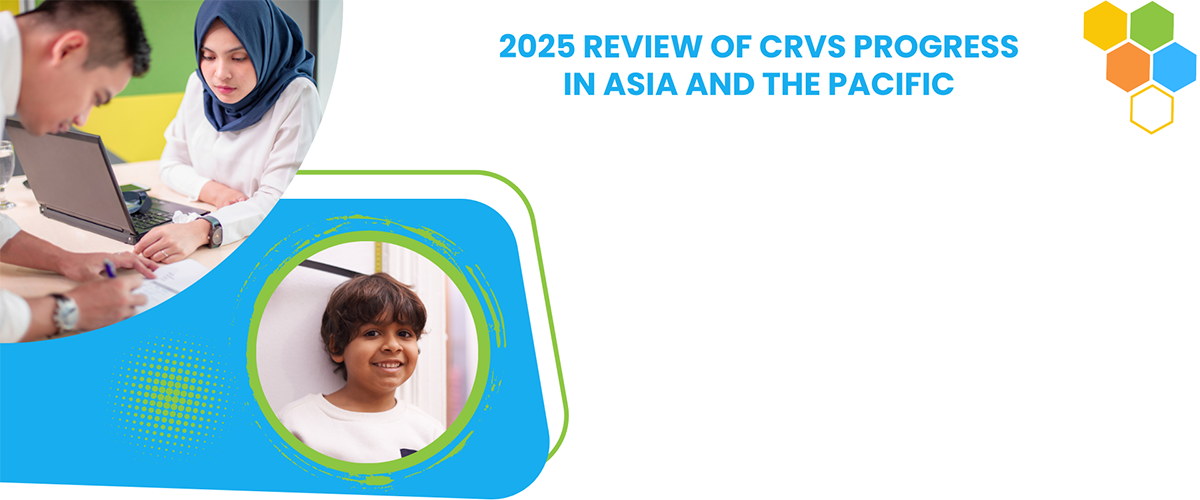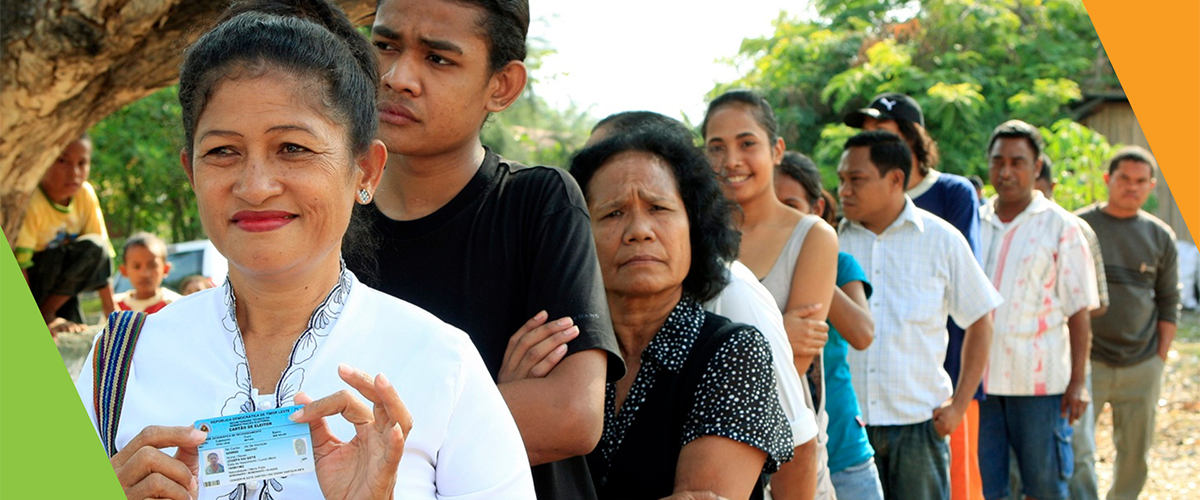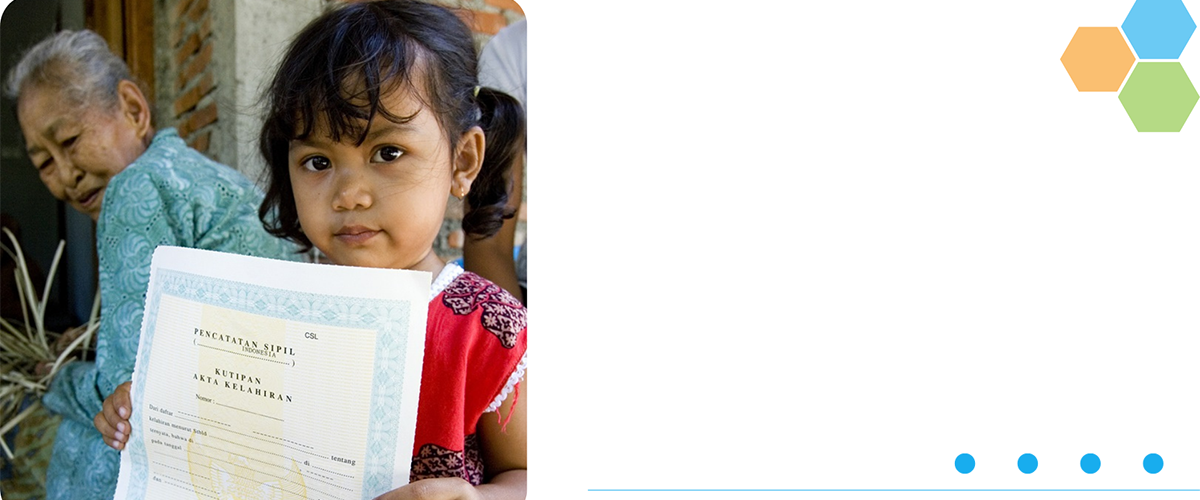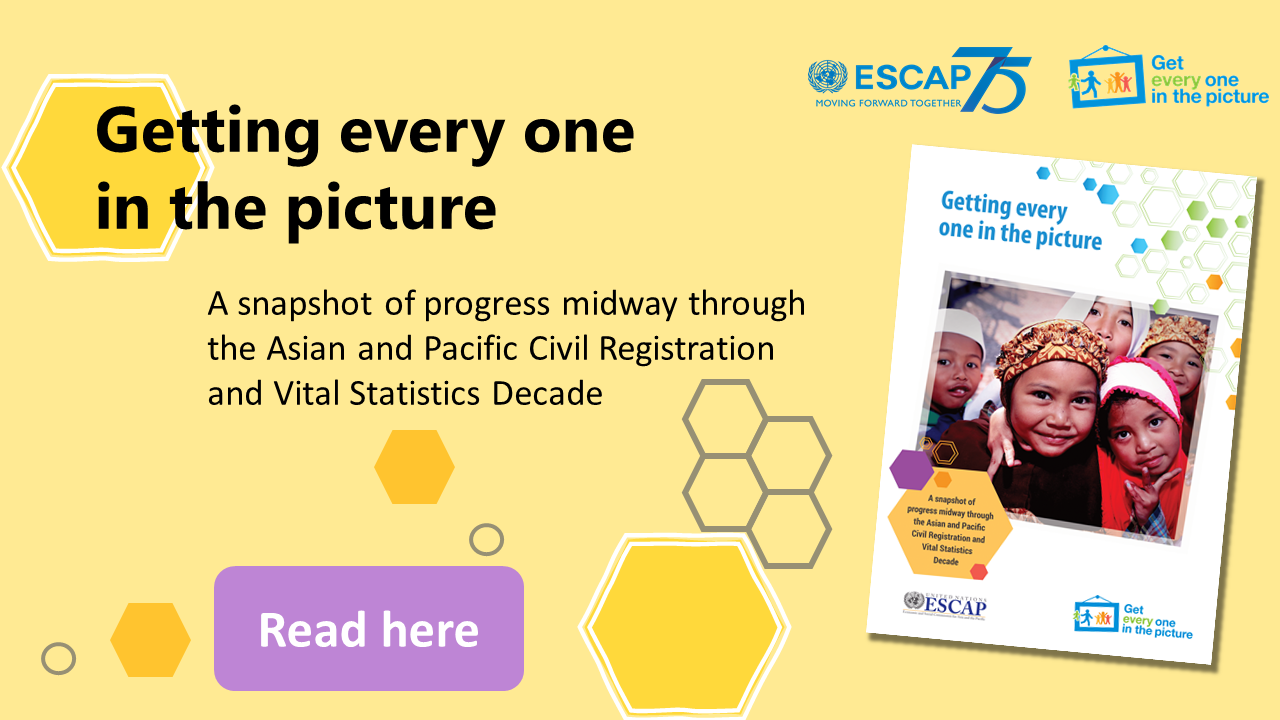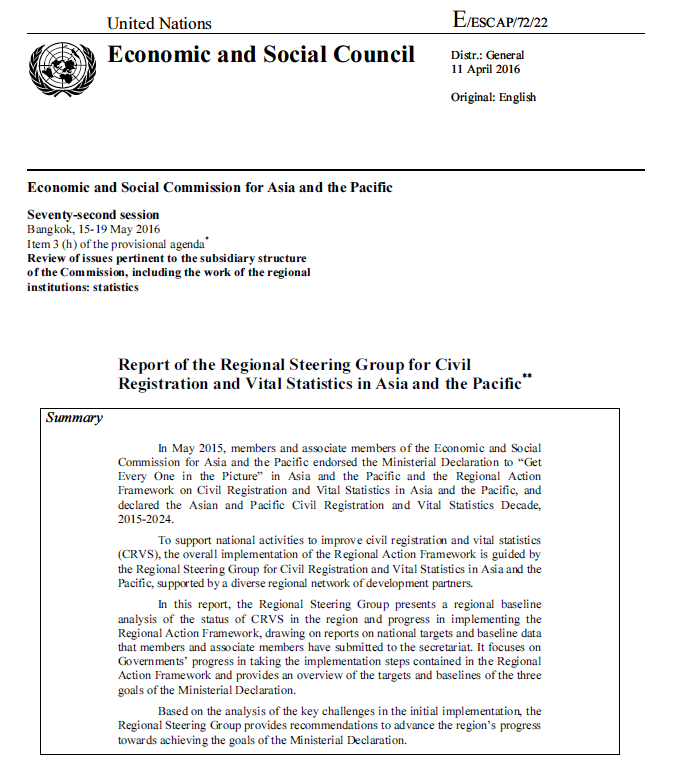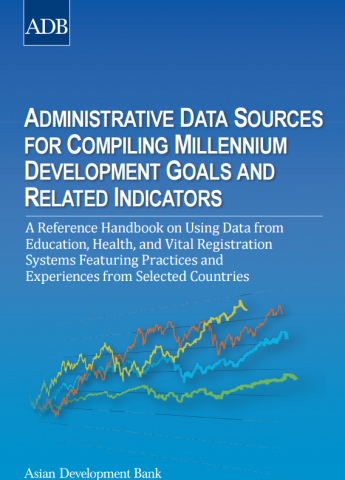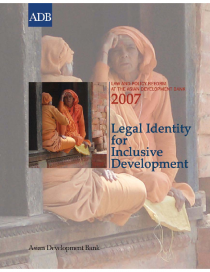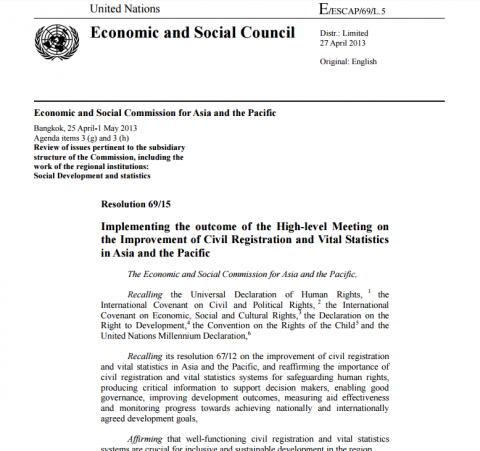Second Meeting of the Regional Steering Group for Civil Registration and Vital Statistics in Asia and the Pacific
The Second Meeting of the Regional Steering Group for Civil Registration and Vital Statistics (CRVS), Bangkok, 6-7 September 2016. The objective of the meeting was to review the progress in the implementation of the Regional Action Framework and identify opportunities for accelerating the progress in terms of both country actions and regional support.

